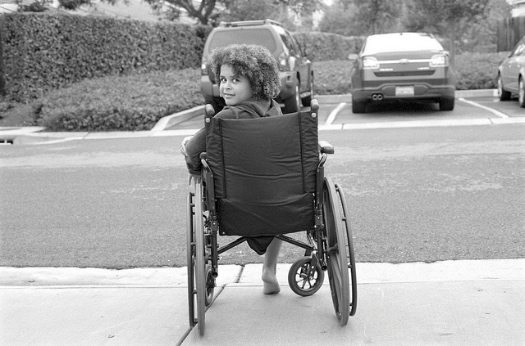
June 6, 2017; NPR, “Shots”
The ongoing debate over the fate of the Affordable Care Act often fails to include the devastating impact of proposed Medicaid changes on people with disabilities, particularly non-elderly adults living independently in the community.
As noted in earlier NPQ stories, the American Health Care Act, passed by the House in March 2017, proposes to cut federal Medicaid spending by more than $800 billion over the next decade by imposing a per-capita cap on spending. President Trump’s budget proposal suggests that we could see even deeper cuts, totaling over a trillion dollars, to this vital program.
According to the Kaiser Family Fund, over 22 million non-elderly adults living in communities across the U.S. have a disability. For about one third, or 7 million of these adults with disabilities, Medicaid is an essential resource, often complementing either Social Security’s SSI or SSDI program benefits. Medicaid provides not just healthcare coverage but an array of personal supports that make it possible to live independently.
NPR reporter Elly Yu profiled one of these individuals, 38-year-old Evan Nodvin who lives in Sandy Springs, Georgia. Nodvin, who has a developmental disability, lives in an apartment with a roommate and has a job at the local fitness center. A counselor helps Nodvin with shopping and cooking, which he loves, and Nodvin pays for drivers to transport him to and from work at fitness center. All of these services are paid for by Georgia’s Medicaid program.
In testimony to Congress concerning the important role Medicaid plays in his life, Nodvin said, “As you can see, my life is very full. I work, live, and play in the community. My dream is to continue this healthy and useful life.”
But Nodvin’s dream may be in jeopardy. As federal funds for Medicaid dry up, Georgia (and all states) will have to make tough choices—either cutting back on eligibility for services, reducing the types of services available to people with disabilities, or reducing reimbursement to providers. Currently, Georgia receives $2 from the federal government for every $1 it spends on services for people with disabilities. That federal contribution will shrink radically under the administration’s plan.
Sign up for our free newsletters
Subscribe to NPQ's newsletters to have our top stories delivered directly to your inbox.
By signing up, you agree to our privacy policy and terms of use, and to receive messages from NPQ and our partners.
People living with disabilities have been fighting for the right to live in the community, with appropriate supports and services, since the 1960s. July marks the 18th anniversary of the Supreme Court Olmstead decision, which established that people with disabilities have the right to services that allow them to live “in the most integrated setting possible.”
The Obama administration, through its expansion of Medicaid and the implementation of the Community First Choice attendant services, established a stronger foundation for community living. Through these programs, the federal government increased its contribution to state Medicaid programs that expanded home- and community-based supports and services.
Without federal Medicaid dollars, states are likely to pull back on these programs, which fall under the Medicaid “state option,” meaning they are not Medicaid entitlements. Nonetheless, we can expect lawsuits to follow if people with disabilities are forced back into institutional settings against their will.
In a press release announcing a June 6th rally to protest Medicaid cuts, Faiz Shakir, the national political director of the American Civil Liberties Union, reiterated the critical importance of Medicaid to the civil rights of people with disabilities:
By slashing nearly a trillion dollars in funding for Medicaid, the American Health Care Act is nothing less than an assault on people with disabilities.
For those who need care the most, Medicaid is more than an insurance plan—it’s an essential lifeline that empowers them to live on their own instead of in a nursing home or institution.
—Karen Kahn













